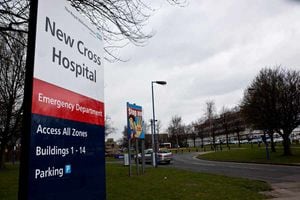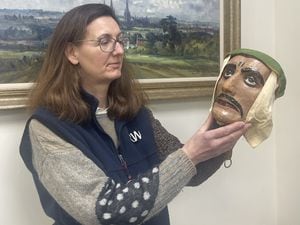Wolverhampton hospital vies for £2 million wrist band pilot
Hospital services in Wolverhampton are in the running for an ambitious £2 million project that will see patients wear bar code wristbands to improve record keeping.

Computer chiefs at New Cross Hospital and Cannock Chase Hospital are among 11 teams vying to be shortlisted for the hi-tech scheme to identify patients and better manage information about them.
Under the pilot details about any implants and devices patients have will be automatically transferred to electronic notes.
The electronic Global Location system also has the potential to help with information about medication.
Royal Wolverhampton NHS Trust's finance chief Kevin Stringer told a board meeting: "This is about bar coding. We're hoping to get on a final shortlist of six bodies.

"It is a real opportunity for the trust. The key benefit for the patient is ensuring that things are done for then at the right time, such as operations.
"It is fully electronic and can push on the technology relating to prescriptions and pharmacy to make sure the patient is getting the right medication.
"There is a particular emphasis on safety."
If successful the trust will attract around £2m in funding to run set up the facility."
A trust report states: "The adoption of location codes will enhance the patient recognition systems – bar coded wristbands – allowing the potential for the automatic transfer of device/implant details into the patient's electronic notes.
"This aspect of the programme is due to become EU law during 2015.
"This type of system has implications for the enablement of the electronic recording of prescriptions and other medical device usage."
During June 2015, the trust submitted a strategic outline programme to the Department of Health.
It was then shortlisted among 11 other organisations. The second stage consists of a more detailed application which needs to take on a more formal approach.
If the trust is successful to run one of six pilots it will receive a bursary of approximately £2m.
It adds that several hospital departments have requested to take part in the trial including pathology, personnel, operating theatres, sterile services and the procurement unit.
The final proposal will be submitted in November.





